Staff Inquiry: Our Favorite Female Directors
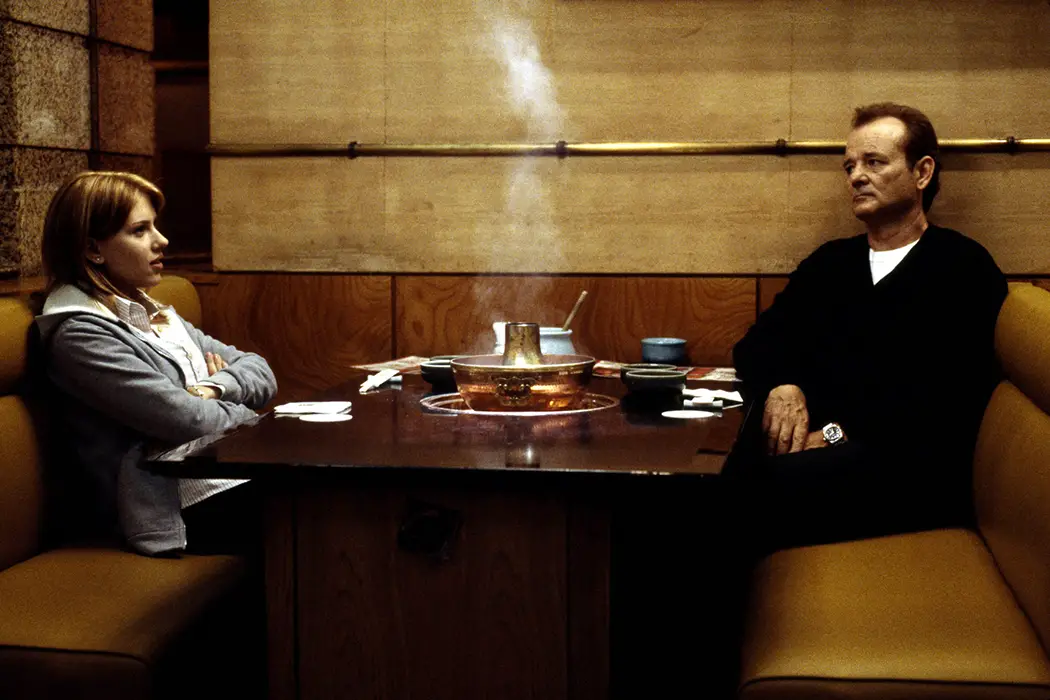
Alex is a film addict, TV aficionado, and book lover.…
It’s no secret that female directors have an uphill battle in the industry. Often overlooked, underpaid, and struggling to keep a career going, they rarely get mentioned in the same breath as their male counterparts. That doesn’t mean they don’t deserve it, though, so this month we’re singling out some of our favorite female directors, ones that really should get brought up more often.
Tynan Yanaga – Ida Lupino
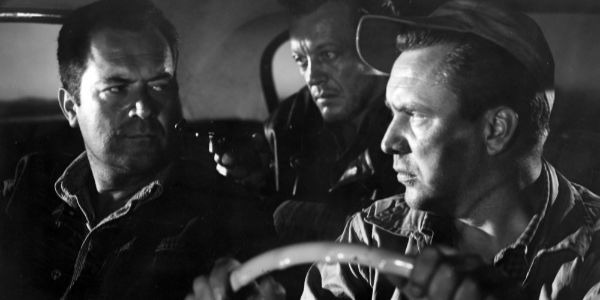
Film noir is so hard to pin down because it comes under many guises, whether gangsters, crime films, melodramas, or woman’s pictures. The beauty of actor-director extraordinaire Ida Lupino is how she completely obliterates any type of label where these movies are concerned. Because in the midst of co-running her own production company and starring in such glorious low-budget beauts as Road House, On Dangerous Ground, Private Hell 36, and While The City Sleeps, she started to exert herself in the director’s chair.
At her best, she made exhilarating movies imbued with groundbreaking importance going beyond the borders of 1950s America. As Exhibit A, look to her nerve-wracking thriller, The Hitch-Hiker, plucked out of real-life news clippings and detailing a psychotic killer commandeering the fishing trip of two men. It plays as a stunning rejoinder to any imbecile who says women cannot direct a gritty actioner. Not a punch is pulled.
Then, there’s The Bigamist, also featuring Edmond O’Brien. Except, instead of a victim, he’s a traveling businessman with a major problem: he finds himself wedded to two women – a product of his restless loneliness on the road. Lupino plays one of the scorned lovers opposite the ever-docile Joan Fontaine.
The biggest surprise is how nuanced and restrained the film remains given the subject matter. It takes an exploitative title and instills it with this rather disarming pathos. Without even touching on her later television work, it’s easy to champion Lupino because she really was a pioneer, but just as importantly, she was a first-rate talent, both in front of and behind the camera.
Emily Wheeler – Kelly Reichardt
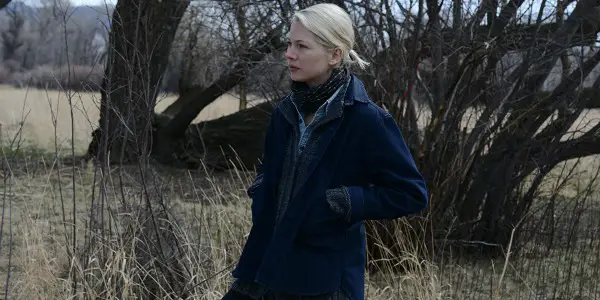
I joke that I can’t review a western anymore without mentioning Kelly Reichardt. She isn’t the biggest name currently working but she’s had one of the biggest impacts, redefining a genre so completely that nearly every American western of the last five years has some of her breadcrumbs.
The slow, ponderous nature of films like Certain Women, Meek’s Cutoff, and Wendy and Lucy form an elegy to a lost America. Once billed as a beacon of opportunity, the country has lost some of its luster, and in following quiet, solitary characters through the few expanses still left, Reichardt questions what has really been accomplished. The longing of her characters betrays the country’s faults, and as both American and non-American filmmakers fear for where the country is headed, they’re increasingly feeding off Reichardt’s trademarks to form a subgenre all their own.
Leave No Trace, Little Woods, Lean on Pete – all of these are about people struggling through America’s broken systems, and all share Reichardt’s sensibilities. She makes wonderful films, the kind others like to emulated, and I can think of no better endorsement.
Matthew Singleton – Sofia Coppola
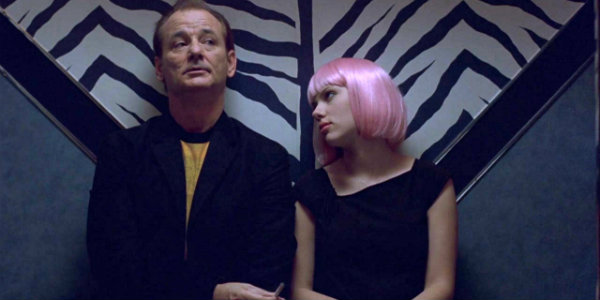
When discussion turns to the most distinctive voices working in cinema today, too often is Sofia Coppola forgotten. Her filmography is an eclectic mix of delights, some appreciated at the time and others only belatedly praised once the dust had settled.
For her debut, The Virgin Suicides, Coppola mixed her delightful painterly eye with a brilliant novel, creating an ethereal teenage tale, and arguably her finest work to date. Her Oscar-winning sophomore effort, Lost in Translation, is its closest competitor, an understated yet dazzling dive into a whirlwind romance in Tokyo.
Coppola then changed tack and with the amazing Kirsten Dunst, crafted the 18th century Versailles spectacular Marie Antoinette. These seemingly dramatic shifts are the norm for Coppola. Her filmography reads like a list of daring decisions to divert from the expected course of action. Remarkably, every single time, whether it’s a film based on a Vanity Fair article (The Bling Ring) or a remake of a 1971 Don Siegel film (The Beguiled), it has worked.
The finest directors know how to bring out the best in their actors, and from the beginning Coppola has done exactly that. She drew out untold depths from Bill Murray in his finest performance, gave Stephen Dorff his greatest role in the underrated Somewhere, and let us not forget, set Emma Watson wild in The Bling Ring.
Coppola’s director’s eye finds the most dazzling shot time and again. Her films however, are never style over substance. Her stories radiate with tenderness and their central bonds are always heartfelt and raw. Even when exploring the seemingly meaningless thefts in The Bling Ring, there is no hollowness in the beauty of Coppola’s films.
In 1999, Coppola immediately stepped out of her father’s shadow, announcing herself to the world. Now, twenty years later, she’s one of our best working directors.
Jay Ledbetter – The Wachowskis

There are two kinds of Wachowski films: ones that people love immediately and ones that people dismiss, at first, re-evaluate years later, and then acknowledge are much more interesting than they originally thought. Lambasted upon release, Speed Racer’s formal and technical achievements are now almost universally acknowledged. Cloud Atlas’ dense ambition is hailed by many after very mixed reviews in 2012. Even Jupiter Ascending has had a bit of a critical resurgence. The sisters have pushed the boundaries of blockbuster filmmaking throughout their careers. Whether it is forward-thinking form or mind-bending philosophy, there are layers upon layers to unravel with their films. One can never claim that the vision of the Wachowskis was not realized.
The argument can be made that The Matrix is the most influential film on this millennium of film. For better or worse, the film has been imitated countless times, establishing filmmaking techniques that had never been seen before and bringing a serious headiness back to the world of science fiction. It is exciting to see filmmakers push the medium forward so boldly and unabashedly. The Wachowskis wear their hearts on their sleeve with every film they make, never wavering in their goals (heck, that’s what several of their films are about). We are at a bit of a crossroads with the Wachowskis, as their creative partnership appears to have ended. It will just be Lana at the helm of the fourth entry in the Matrix franchise. Whether together or apart, I am just glad that the Wachowskis can keep making their brave, challenging art.
Soham Gadre – Chantal Akerman
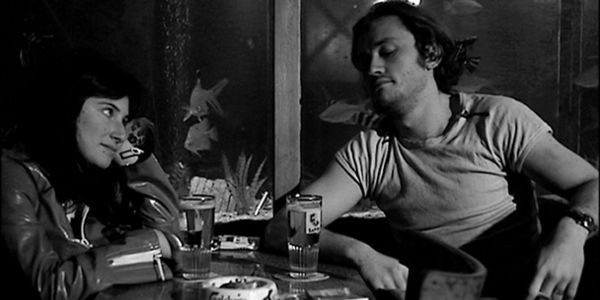
Chantal Akerman is an unequivocal genius behind a camera. Making a name for herself as a landmark auteur in feminist cinema with films like Jeanne Dielman, Je tu il elle, and Les rendez-vous d’Anna, her exploration of the darker, unearthed crevices of women’s roles and pressured obligations in human relationships, especially those with men, marked a new vision in cinema which, along with her predecessor Agnes Varda, gave rise to a movement of bold women filmmakers around the world. She has, in extension, served as an inspirational and esteemed figure for aspiring filmmakers even up to today (yours truly being one of them) who are often discouraged by industries which try to convince them that money dictates the value of art in society.
Many filmmakers showcase their abilities and observations of the world with elaborate tricks and extravagant techniques that are more indicative of a wealth of financial resources rather than a wealth of talent. Akerman doesn’t need anything more than a camera and a building, or a room, or a city street, or a woman slicing potatoes in her kitchen. Her landmark short films Le Chambre (1 & 2) and Hotel Monterey demonstrate an ability to create absorbing worlds from places we’ve all been.
Similarly, her personal documentaries News from Home and No Home Movie leave an emotional scar in the way her depiction of her relationship between her mother is presented so bare and open, filled with emotion that cannot be scripted or faked. Here too life is the main visual attraction, not concocted by gadgetry but presented as is and shot and edited to guide out emotions instead of dictating them.
Her ability to make cinema into an absorbing experience simply by pointing and shooting something that’s there showcases the intelligence of a filmmaker who understands that cinema’s sole utilitarian purpose need not be to transport us to an escape outside ourselves, but can also peer deep within. Her plea for viewers and filmmakers is to understand that cinema can help us discover and appreciate the magic, the history, and the ghosts in the things we see and experience every day.
Zoe Crombie – Alice Guy-Blaché
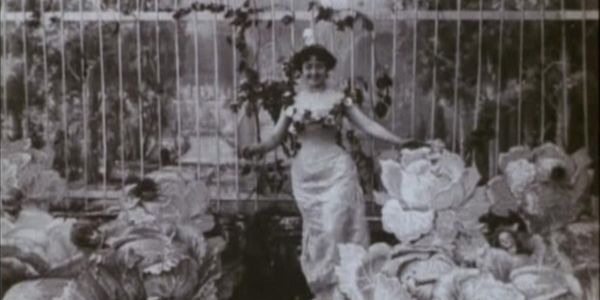
Honestly, despite the title of this article, I would say that my favourite female-directed movies are consistently made by Lynne Ramsey and Agnes Varda, two brilliant women who excel in their craft and have repeatedly set new standards of brilliance in the industry. But in terms of a single figure, I have to go with the criminally underknown Alice Guy-Blaché, an early pioneer of film and one of the most important filmmakers of all time, who used the subject matter of a typically feminine realm to create the basis of narrative cinema as we know it.
As the second-in-command to Léon Gaumont, Guy-Blaché was able to make her movies with the new technology that was within her reach, with Gaumont allowing her free reign to make productions that would advertise his cameras. As opposed to the Lumiere Brothers, who at the time were focused on ‘actualities’ that simply documented reality (their famous Arrival of a Train, for instance), Guy-Blaché had a more imaginative approach, making her first film, The Cabbage Fairy, based on a French myth about finding babies in a cabbage patch. In doing this, she was one of the first to attempt to construct a new reality onscreen, recognising the medium’s ability to make the impossible visible.
Throughout her career, Guy-Blaché made hundreds of films, many of which can be easily found on YouTube – a personal favourite of mine is the delightfully weird Automated Hat-Maker and Sausage-Grinder. As well as her creative contributions, Guy-Blaché was also the first woman to set up her own film studio (Solax Studios), essentially establishing the studio system that was to become the standard in Hollywood for decades to come. Her name deserves to be as widely known as that of Lumiere or Melies, and I hope that in sharing her as my favourite female director I have helped spread the word.
Those are some of our favorite female directors. Who are yours?
Does content like this matter to you?
Become a Member and support film journalism. Unlock access to all of Film Inquiry`s great articles. Join a community of like-minded readers who are passionate about cinema - get access to our private members Network, give back to independent filmmakers, and more.
Alex is a film addict, TV aficionado, and book lover. He's perfecting his cat dad energy.













